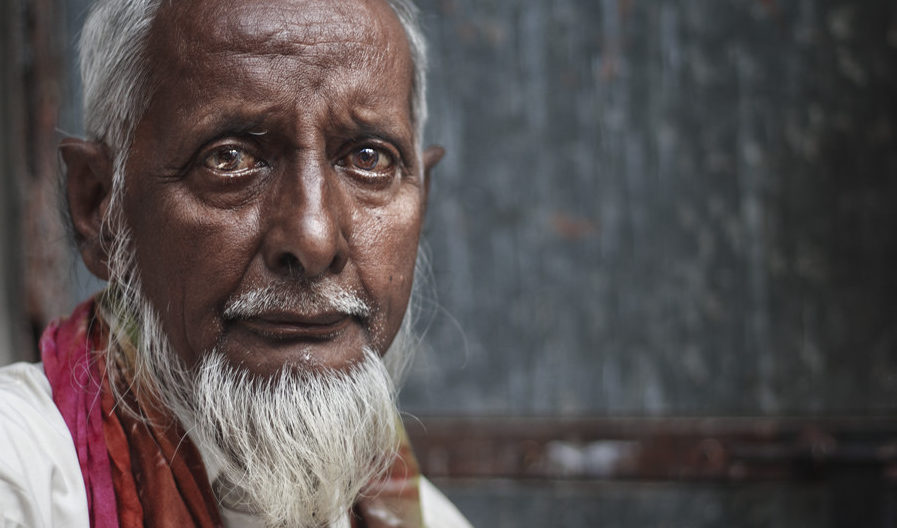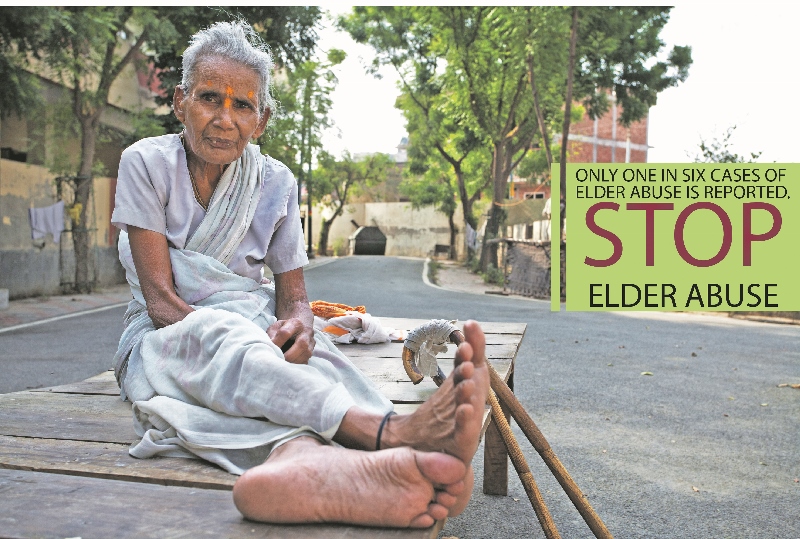How do we define abuse of any kind? Must there be a bruise or any such physical evidence that is visible? Abuse of the elderly can be as insidious and invisible as whispered words spoken to a pet. Many elderly people have lost their contemporaries and feel isolated. Those who shared the common fading memories are gone just like those days and have left those living bereft. There is none to recall the days of landline phones shared as community property or the songbooks sold at the end of each movie show. Few recall the tram rides, using buses as the sole means of transport, and snacking on “jhal-muri” after a movie show.

Even two or three decades ago, a joint family was the main support system for the elderly. Radical changes in lifestyle have happened since – from wired lines to wireless transfers; from Door Darshan to Netflix; and from Passbooks to Net-banking. Does anyone really have the time or the patience to elaborate these to the elderly grandparent sitting in the corner, dozing? With the increase in the demands of life, where is the time to teach new things to others? “Old Age Homes” become the refuge of many older people whose children are away and want them to spend time with people of their own age and share history and cultural values.
Those who become too frail are at times isolated into their own rooms if fortunate. It is not uncommon for the rest of the family to treat a grandparent like a “pariah” and send them to stay in the storage room or pantry to keep them away from eyesight. I have seen patients in such circumstances, and these are the patients I tend to spend extra time talking to and trying to keep company. With these patients, I try to become a “Patch Adams” for them, to try and bring a smile to their faces.

I recall after my mother’s death, our neighbour, Dorothy, was genuinely concerned about me losing my mother at a relatively young age. So, each Saturday morning for close to a year, she would visit and spend at least 3 hours over a cup of tea and morning cookies, talking about her childhood which was during the famous “Depression” in the 1930s. Given my passion for history, Dorothy became my time machine! She would patiently answer my questions, and our friendship grew stronger with each cup of tea. Her children lived far away and found little time to visit. They offered little assistance, and when Dorothy had a cerebrovascular attack (Stroke), her younger daughter, who was the decision-maker, denied her any medical treatment, not even a hospice. This (daughter) was the same person who was a social pioneer in bringing AIDS into the American government’s focus in the 1980s! I lost my living history book and compassionate companion, who cared for me and me for her.
We forget that our elders have seen life in a different way and held our hands through that path. Now the path has changed – the cobbled roads have metamorphosed into an information highway of bits and bytes. Do we not need to keep holding that hand and take the mantle of a guide for both our elders and our children? If we leave the hands of either would that not be considered abuse of isolation, abuse that is not seen and often defended by people with endless excuses?
In the west, nursing homes for Older People are notorious for unexplained bruises and infections of residents who are bedridden. The economics of the facilities does not allow the families to question this further… the alternative is hospice assistance given at home, but a family caregiver needs to be available. The pandemic forced many elderly to remain home alone with this type of care, but it is still more expensive and often difficult for families to bear.
As I reach my “Golden years” after acquiring my badge of a “Senior Citizen”, my friend and I, who have remained single without a spouse or child, are searching for a solution for that time when our extended family will not have patience, interest or energy to take care of us and all my knowledge, experience and intellect will be constrained by a body that cannot move at will, and is subject to the goodwill of caregivers “trained” to care for us.
Care for the elderly can be done by both strangers and family; the common denominator is compassion and the realisation that as caregivers to these elders, they are looking into their futures, and these older people still have much to offer. We need to believe in “Do unto others as you would have them do unto you”
There is a need to keep us seniors relevant and understand that we can offer much in the historical aspect and that we have a wealth of information and experience. Our age is a number; it should not be used to define us or our productivity. Our health may constrain us, but not our age. In the cycle of life, every person will go through ‘ageing’. Teaching the younger generation to respect and value ‘ageing’ by spending more time in our company is an important lesson from the past. This also helps balance the trials and tribulations of youth by giving them the perspective of time.
How do we prevent abuse? It has to be a multi-pronged approach, beginning at home. To this day, in most cases, we can just counsel the very people who are abusive and send the victim back to the place of abuse, often with no supervision or retaliation. I believe that the status of “Son” or “Daughter” needs to be questioned when the parent is a victim of abuse by the very child they raised with such love and so many challenges. When a widowed mother is disowned by her child and left on the street, there must be some legal or social recourse the victim can take (and is aware of). We do have a Senior Citizen security cell with the police force, but you would be surprised to know that they are overwhelmed with complaints and often need to threaten and intimidate adults into treating their parents with basic care and respect! We need an organisation that can function as an oversight, where doctors or people who see abuse can report this, and some action can be taken on behalf of the victim. The task may be monumental, but drop by drop can and does fill oceans. Yesterday, Cancer was a death knell; today, it is a battle for life; some lose but many win. If we come together as a community, we can prevent any form of abuse, especially of the vulnerable population.
Until then, I am well on my way to making friends who are younger and more adventurous as I read somewhere that this will keep me younger mentally and spiritually. I truly believe that seniors should not blindly rely on our past knowledge as being the ultimate knowledge. This is a lesson I learned when I went back to repeat my pre-med, by which time what I had learnt about the chemical atomic structure was considered “obsolete”, and a new model had taken its place. It was a “wake-up call” for me to keep on learning and not fall back on my laurels of academic achievements.
As “Seniors or Super Seniors” we have not finished growing and changing. When we look in the mirror, we are blinded to the grey, the wrinkles and the lost teeth. All we see is what we feel, our spirit, that we had in our teens. As we learn new things, it just takes a little longer than before, that’s all. Be with us. You won’t regret it!
Dr Aloka N. Dalal
Community Physician and Proud Senior Citizen
